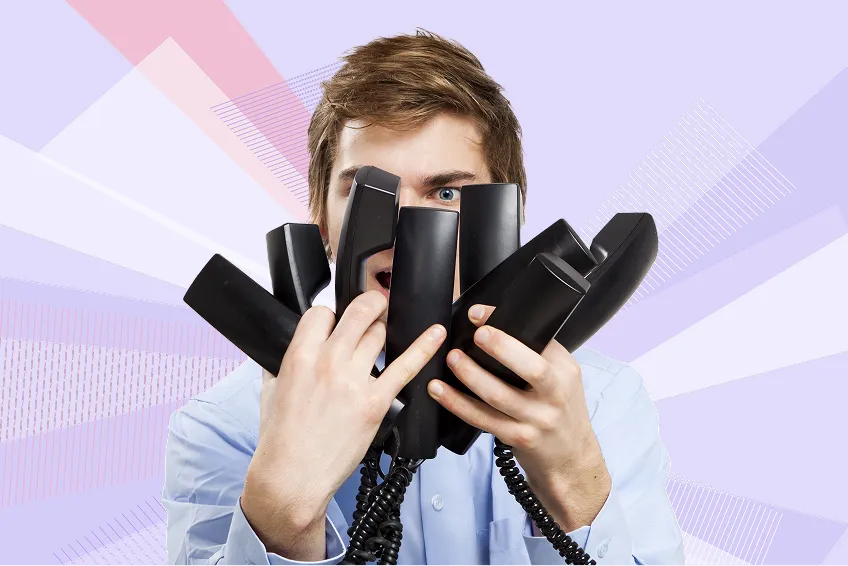Managing Health
Ketchum, one of the world’s leading communications firms, has released the Ketchum mHealth Monitor, mapping U.S. consumers’ adoption of wearable technology, apps and artificial intelligence (A.I.) for personal health and wellness. The study, released today, highlights significant mobile health technology opportunities and frames five kinds of mHealth users. It also explains how companies can leverage mobile technology to help people improve their health and the changing dynamics of how health is managed.
According to the study, close to 6 in 10 (58 percent) of Americans with a smartphone say they have shared information with a medical professional via the Internet on their smartphone, mobile app or wearable device, and 1 in 4 have emailed or texted a photo of a medical issue to a doctor. The study shows that they’re also managing their health on their own from their smartphones or fitness trackers. Almost half (47 percent) of respondents have an app that tracks fitness, working out, health or medicine. In addition, 83 percent of people who use fitness or workout apps use them at least once a week.
“This study points to a shift in people’s attitudes and readiness to use technology to manage their health,” said Lisa Sullivan, executive vice president and North American technology practice leader for Ketchum. “With U.S. smartphone adoption at 68 percent, now is the time for businesses that have a stake in the healthcare industry to push to develop approachable, intuitive mobile tech offerings that help the ever-increasing mobile user population improve something as personal and important as their health.”
The study also evaluated the emerging use of A.I. — instances where computer systems are able to perform tasks that normally require human intelligence — for health and wellness. Whether asking Siri® about a prescription they’re taking or sending a photo of a medical condition for diagnosis by a virtual assistant, 2 in 5 (39 percent) Americans say they’re comfortable using A.I.
“In addition to improving patient experiences, mHealth technology also has the potential to help offset some of the rising costs of healthcare,” added Sullivan. “Studies have shown correlations between leveraging mobile apps for patients with chronic diseases and cost savings, so the power of mHealth can truly be quantified in a way that makes sense for a company’s bottom line.”
Five Kinds of mHealth Users
As part of the study, Ketchum identified five types of users, segmented by current attitudes toward mHealth, health behaviors and overall mobile/technology adoption. The aim is to gain a better understanding of people’s likes, dislikes and general habits when it comes to mHealth and identify opportunities to make it easier and more convenient for people to manage their health and wellness through mobile devices or fitness trackers.
- Discerning Digitals: These are the super users who love being constantly connected, but may also struggle with feeling too available. They are advocates of mHealth but still like face-to-face contact with medical professionals.
- Swayable Seekers: This group wants to expand their smartphone repertoire beyond just making calls. They feel confident about managing their health and get a lot of their medical info online. The majority feel like they have a lot to learn about using mobile tech for their health.
- Health Tech Hesitators: This group admits they don’t manage their health very well and aren’t happy with their physical well-being, and they’re not exactly comfortable sharing information online either.
- App-athetic Agnostics: These people love mobile technology; many just don’t use any type of mHealth, nor do they care to in the next year.
- Low-tech Lifers: These are the traditionalists who don’t think mHealth has had a positive impact on their lives, nor do they foresee it having a positive impact in the future.
“Our mHealth Monitor provides an important look into how both human and system behavior are rapidly changing and converging to connect health management,” said Valerie Delva, health strategy director for Ketchum North America. “Though current attitudes toward using mobile technologies for health at the individual level are quite complex, the insights here also speak to broader trends in the health ecosystem and the potential for these technologies to help improve health outcomes.”
Mobile Matters
Ketchum’s study uncovered other findings that reveal a few speed bumps and opportunities for businesses engaging on health. Highlights include:
- Nearly a quarter (24 percent) of Americans said health and fitness tracking apps have made them feel bad, and 21 percent have stopped using certain apps.
- Although the majority of Americans said they have used technology to interact with a medical professional, most (63 percent) said they still prefer face-to-face interaction with their healthcare providers.
- Nearly one-third (32 percent) said they are likely to use an A.I. search tool and 31 percent an A.I. health tracker, but they aren’t too convinced about using an A.I. medical adviser (18 percent) or an artificially intelligent therapist (9 percent).
- There’s an opportunity to educate: Just over half (51 percent) — across all ages — feel they have a lot to learn about how mHealth can benefit their health.
Visit https://www.ketchum.com/ to see The Five Kinds of mHealth Users and learn more about the mHealth Monitor.
Klara is an mhealth option that makes communication more efficient for providers, staff and patients.










